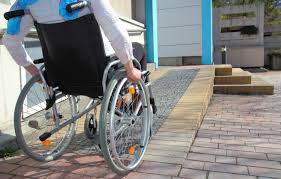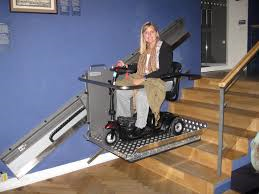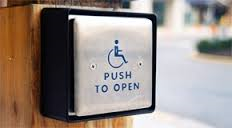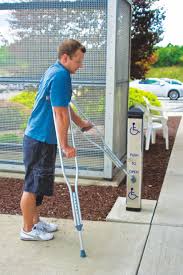Condo corporations need to be mindful of the Accessibility for Ontarians with Disabilities Act which governs what requirements apply to new construction and buildings that undergo major renovations. They should also be aware that the Human Rights Code creates a right to accessible housing and amenities for all Ontarians. These laws, as they apply to condo buildings, help ensure an environment accessible for residents who are seniors or possess disabilities.
Accessibility requirements as defined in these pieces of legislation provide condo corporations with a direction to follow when seeking to make their buildings appealing to residents while increasing the resale value of condo suites.
Some condo boards fear that disability access may be too costly for operational and reserve fund accounts. Other boards may feel that improved access is not their concern. These views fail to recognize how many people require such access.
Improved access, while intended for safety purposes, can help make a condo building more marketable and increase resale values
Disabled access is important to more than the elderly and handicapped. It is important to those who are temporarily disabled. A broken leg from a skiing accident or reduced vision after receiving eye drops are just two situations where otherwise healthy individuals may benefit from easier access. Disability, permanent or temporary, may result after a car accident. A resident may have had a heart attack, stroke or adverse reaction to medication. In all cases, healthy individuals suddenly find difficulty navigating a condo building and its common elements.
Improved access, while intended for safety purposes, can help make a condo building more marketable and increase resale values. It provides value for all residents including handicapped and disabled.
For the most part, condo buildings must comply with accessibility requirements whenever a part of the building is renovated. Taking a proactive approach and understanding accessibility concerns should be part of any condo renovation or upgrade project.
Elevators that call out floor numbers are helpful for those with limited vision or focused on their mobile phone.
Building entrances and access to common areas should accommodate those with crutches, walkers, wheelchairs, strollers, scooters and individuals carrying shopping bags.
 Automated door openers fulfill this role and are increasingly used for building access, including garage level lobbies, and common area bathrooms. They are also helpful for those with poor hand grip or strength.
Automated door openers fulfill this role and are increasingly used for building access, including garage level lobbies, and common area bathrooms. They are also helpful for those with poor hand grip or strength.
Outdoor common areas designed with a step to prevent water entry to the building may be inaccessible to some residents.
Light switches, enterphones, thermostats, microwaves, television, sauna controls and similar items that are part of common areas should be sufficiently low to accommodate those in wheelchairs or unable to reach up.
Ramps and stairs may be barriers for people with limited mobility or vision. Adding a contrasting colour or tactile strip to a ramp or the edge of stairs can help these people and make barriers more accessible. Slip resistant surface finishes, required for new construction, are helpful to individuals who use scooters, wheelchairs and other mobility devices.
The number of required accessible parking spaces is dependent on the size of the lot. For lots containing up to 50 vehicles, between one and three accessible spaces are required. At least one of the spaces must be large enough to accommodate a van fitted with a lift mechanism operating from the side or rear of the vehicle.
 When considering major building upgrades or renovations, taking an inclusive approach that includes accessible design principles can help to ensure these retrofits are consistent with overall design and do not significantly add to costs.
When considering major building upgrades or renovations, taking an inclusive approach that includes accessible design principles can help to ensure these retrofits are consistent with overall design and do not significantly add to costs.
A well prepared Condo Board and management team can make the difference. Avoid having to receive written compliance orders or Human Rights complaints. Be forward thinking when managing condo renovations and upgrades by considering the permanent and temporary needs of all condo residents.
Find Vendors in these Related Categories
- Accessibility Products
- Building Sciences
- Contractors - Electrical
- Contractors - General
- Contractors - Mechanical
- Design Services
- Education & Recreation
- Engineering Services
- Flooring
- Home Finishing
- Home Services & Automation
- Landscaping and Gardening Services
- Lighting Services & Suppliers
- Painting
- Recreation and Fitness
- Renovation Services
- Restoration Services
- Seniors
- Window Replacement/Repair





